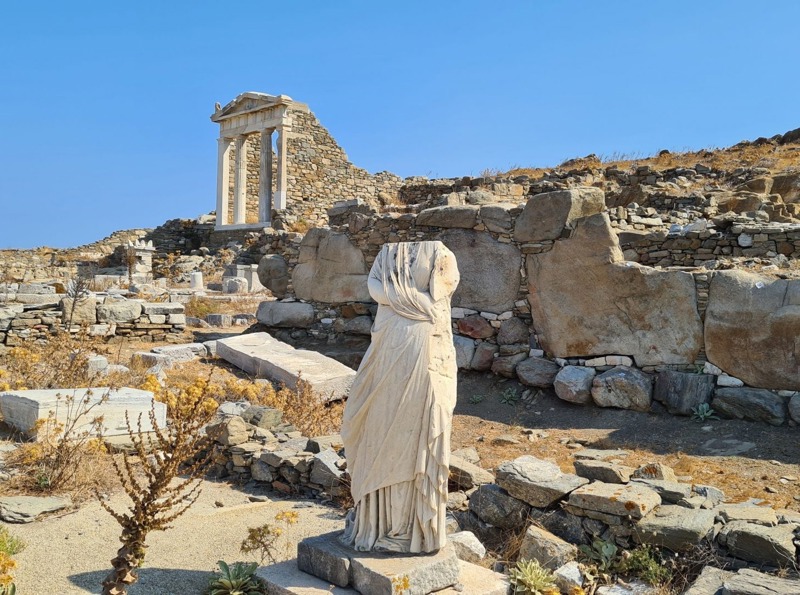Travel Log
Nestled within the azure waters of the Aegean Sea lies the tiny island of Delos, a jewel of ancient Greek civilization and a UNESCO World Heritage site. Revered as the mythical birthplace of Apollo and Artemis, Delos holds a special place in the hearts and minds of Greeks and scholars alike, offering a glimpse into the ancient world's religious, cultural, and commercial life.
As I set foot on the sacred shores of Delos, I was immediately struck by the island's serene beauty and profound sense of history. Delos served as a bustling hub
Joe Lee
5 chapters
28 Feb 2024
The Island of Delos
February 25, 2024
Nestled within the azure waters of the Aegean Sea lies the tiny island of Delos, a jewel of ancient Greek civilization and a UNESCO World Heritage site. Revered as the mythical birthplace of Apollo and Artemis, Delos holds a special place in the hearts and minds of Greeks and scholars alike, offering a glimpse into the ancient world's religious, cultural, and commercial life.
As I set foot on the sacred shores of Delos, I was immediately struck by the island's serene beauty and profound sense of history. Delos served as a bustling hub

of trade, religion, and politics in antiquity, attracting merchants, pilgrims, and diplomats from across the Mediterranean world. Its strategic location at the crossroads of maritime trade routes made it a vital center of commerce and cultural exchange.
One of the most remarkable features of Delos is its extensive archaeological remains, which bear witness to its illustrious past. The island is home to many ancient temples, sanctuaries, marketplaces, and residential quarters, offering a rich tapestry of architectural styles and historical epochs. Its most famous landmarks are the Terrace of the Lions, the Temple of Apollo, the Sacred Lake, and the House of the Dolphins, each offering insights into different aspects of ancient Greek life.
The Terrace of the Lions, with its iconic row of marble lion sculptures, is a testament to the island's religious significance and artistic achievement. Originally erected by the people of Naxos in the 7th century BCE, the lions once guarded the Sacred Way leading to the sanctuary of Apollo, symbolizing the island's sacred status and divine protection.
The Temple of Apollo, situated at the heart of Delos, served as the focal point of religious worship and civic life. Dedicated to the god of prophecy and music, the temple was a place of pilgrimage and prayer, where worshippers sought divine guidance and blessings. Its impressive colonnades, towering columns, and intricately carved reliefs spoke to the wealth and power of the island's inhabitants.
Beyond its religious significance, Delos was also a thriving center of commerce and culture, boasting a vibrant marketplace, agora, and theater. Merchants across the Mediterranean would converge on the island to buy, sell, and exchange goods, fostering a spirit of cosmopolitanism and cultural diversity.
Today, the island of Delos stands as a testament to the enduring legacy of ancient Greek civilization, inviting visitors to explore its rich archaeological heritage and marvel at the wonders of the past. As I wandered through its sun-drenched streets and labyrinthine alleyways, I couldn't help but feel a sense of wonder and awe at this storied island's timeless beauty and cultural richness.
Share your travel adventures like this!
Create your own travel blog in one step
Share with friends and family to follow your journey
Easy set up, no technical knowledge needed and unlimited storage!